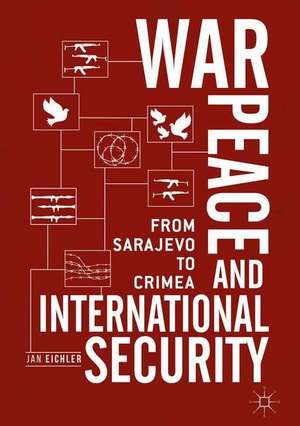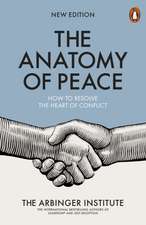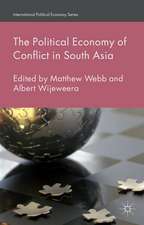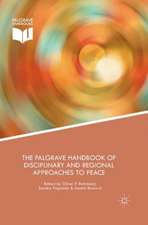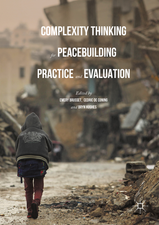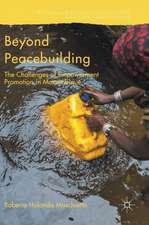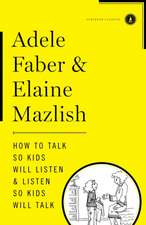War, Peace and International Security: From Sarajevo to Crimea
Autor Jan Eichleren Limba Engleză Hardback – 19 dec 2016
| Toate formatele și edițiile | Preț | Express |
|---|---|---|
| Paperback (1) | 635.47 lei 43-57 zile | |
| Palgrave Macmillan UK – 5 iul 2018 | 635.47 lei 43-57 zile | |
| Hardback (1) | 640.06 lei 43-57 zile | |
| Palgrave Macmillan UK – 19 dec 2016 | 640.06 lei 43-57 zile |
Preț: 640.06 lei
Preț vechi: 753.01 lei
-15% Nou
Puncte Express: 960
Preț estimativ în valută:
122.47€ • 128.22$ • 101.34£
122.47€ • 128.22$ • 101.34£
Carte tipărită la comandă
Livrare economică 07-21 aprilie
Preluare comenzi: 021 569.72.76
Specificații
ISBN-13: 9781137601490
ISBN-10: 1137601493
Pagini: 224
Ilustrații: XX, 210 p.
Dimensiuni: 148 x 210 x 18 mm
Greutate: 0.41 kg
Ediția:1st ed. 2017
Editura: Palgrave Macmillan UK
Colecția Palgrave Macmillan
Locul publicării:London, United Kingdom
ISBN-10: 1137601493
Pagini: 224
Ilustrații: XX, 210 p.
Dimensiuni: 148 x 210 x 18 mm
Greutate: 0.41 kg
Ediția:1st ed. 2017
Editura: Palgrave Macmillan UK
Colecția Palgrave Macmillan
Locul publicării:London, United Kingdom
Cuprins
Chapter: 1.Theoretical inspiration: three key authors.- Chapter 2: From Sarajevo to San Francisco.- Chapter 3: Cold War.- Chapter 4: From the End of the Cold War to the End of the Global War on Terror.- Chapter 4: Chapter 4: From the End of the Cold War to the End of the Global War on Terror.- Chapter 5: From the end of the USSR to the annexation of Crimea.
Notă biografică
Dr Jan Eichler is a Research Fellow at the Institute of International Relations, Prague and Professor of International Security Studies of the University of Economics, Prague. His research interests lie in international security relations from the WWI period to present; namely wars, peace, security and strategic culture and terrorism. He has authored 11 books in Czech, and written many articles and book chapters published in the USA, Great Britain, France, Germany, Turkey, and Poland.
Textul de pe ultima copertă
This book examines and explains the dialectic of war and peace between the outbreak of WWI and the Russian annexation of Crimea in 2014. The theoretical inspiration is built upon Galtung’s concept of negative and positive peace, Aron´s distinction between strategy and diplomacy, and Carr´s theory of periodization. Here, the author compares globalization with the interwar period and examines how the first decade´s positive peace, diplomacy, and big hopes were replaced by negative peace, and explains the growing role of military strategy which culminated after the Russian annexation of Crimea and the following military incidents between NATO and Russia. This volume will be of interest to teachers, students, and researchers in the fields of modern history, international security and peace studies.
Caracteristici
Addresses the following critical questions: Why was the Cold war so exceptional? Is it possible to avoid international crisis and wars? Can positive peace flourish? Offers a consistent theoretical framework for the period 1914-2014, drawing on the legacies of Raymond Aron and Johann Galtung
